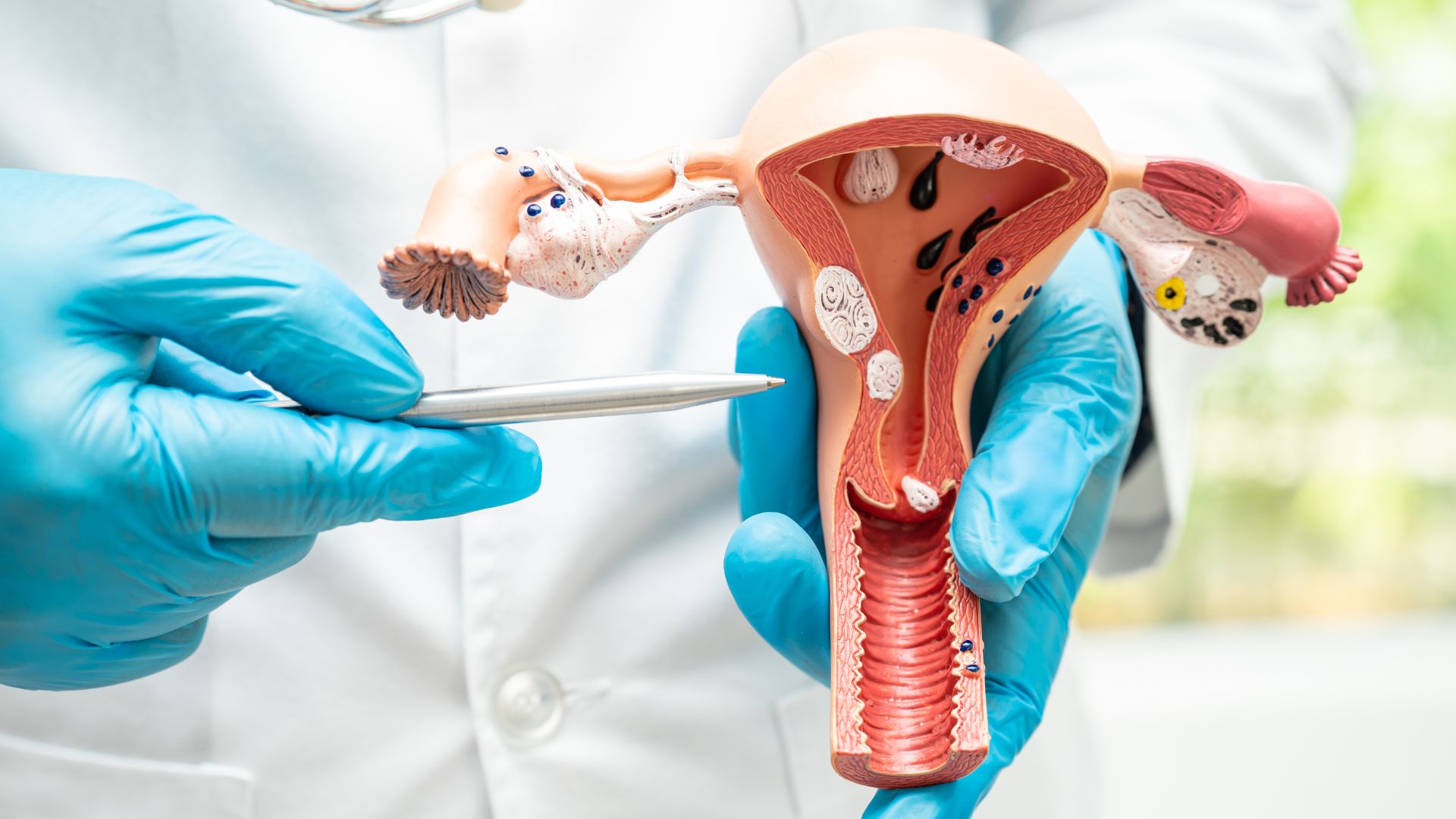Expert Advice from a Cervical Cancer Specialist in Lucknow
Protect Your Health with Awareness and Early Action
Cervical cancer is often referred to as a silent killer. It progresses slowly and quietly, showing few symptoms until it reaches advanced stages. Yet, it is one of the most preventable and treatable forms of cancer if detected early. Sadly, cervical cancer remains the second most common cancer among Indian women.
According to the World Health Organization (WHO), approximately 600,000 new cases and 340,000 deaths due to cervical cancer were recorded worldwide in 2022. Alarmingly, over 85% of these deaths occur in low- and middle-income countries, including India. Our country bears a heavy burden, accounting for nearly one-fourth of global cervical cancer cases. Each year, over 120,000 Indian women are diagnosed, and tragically, more than 67,000 lose their lives — primarily due to late diagnosis.
But there is hope. Early detection can save lives. Don’t wait for symptoms to take action. Instead, take a proactive step and consult a cervical cancer specialist in Lucknow to discuss prevention, screening, and treatment options.
What Causes Cervical Cancer?
Cervical cancer begins in the lining of the cervix, the lower part of the uterus. The major cause is persistent infection with certain high-risk types of Human Papillomavirus (HPV), especially HPV-16 and HPV-18. These strains are responsible for over 99% of all cervical cancer cases. While HPV is a common infection that most sexually active people are exposed to, persistent infection — not cleared by the immune system — can lead to the development of cancer over time.
Certain risk factors increase the chances of developing cervical cancer. These include early onset of sexual activity (before 18 years), having multiple sexual partners, a weak immune system (such as from HIV/AIDS), smoking, and long-term use of oral contraceptives. Fortunately, an effective HPV vaccine exists, and when taken before sexual activity begins, it can reduce the risk of cervical cancer by over 90%.
If you’re unsure about your risk, or want to know whether the HPV vaccine is right for you or your child, it’s best to speak to a cervical cancer specialist in Lucknow who can provide evidence-based guidance.
Signs and Symptoms to Watch For
In the early stages, cervical cancer may not cause noticeable symptoms. That’s why routine screening is so critical. However, as the disease progresses, women may experience abnormal vaginal bleeding (especially after intercourse, between periods, or after menopause), foul-smelling discharge, pelvic pain, or pain during intercourse.
Any of these signs should never be ignored. Bleeding that is not part of your normal menstrual cycle warrants medical attention. If you notice these symptoms, consult a trusted cervical cancer specialist in Lucknow without delay. Early action can make all the difference.
How Is Cervical Cancer Detected Early?
Several screening tests are available to catch cervical cancer at its earliest and most treatable stages. The Pap smear is a widely used test that helps detect abnormal or precancerous cells in the cervix. It is recommended to begin Pap testing from the age of 21 and repeat it every three years.
The HPV DNA test is another important tool. It checks for the presence of high-risk HPV strains that are known to cause cervical cancer. Colposcopy, a more detailed examination of the cervix, is done if abnormal results appear in the initial tests. A biopsy — the removal of cervical tissue — may be needed to confirm the diagnosis.
Modern guidelines recommend “co-testing,” which combines both Pap smear and HPV testing, for more accurate results. Your cervical cancer specialist in Lucknow will recommend the right test based on your age, risk profile, and screening history.
Types and Stages of Cervical Cancer
Cervical cancer primarily develops as squamous cell carcinoma, which accounts for around 80–90% of cases. Other types include adenocarcinoma, which arises from glandular cells, and adenosquamous carcinoma, a less common but more aggressive form.
The disease is staged from 0 to IV. Stage 0 represents pre-cancerous lesions, also known as carcinoma in situ. Stage I is confined to the cervix, while Stage II spreads beyond the cervix to nearby areas like the uterus or upper vagina. In Stage III, cancer invades the pelvic wall or lower vagina. Stage IV is the most advanced, indicating that the cancer has spread to distant organs such as the lungs, liver, or bladder.
Understanding your cancer stage is crucial for treatment. A skilled cervical cancer specialist in Lucknow can accurately assess the stage and recommend the most appropriate approach to care.
Stagewise Treatment Options
Treatment for cervical cancer depends on the stage and individual factors such as age, fertility preferences, and overall health.
- Stage 0 (CIN or pre-invasive lesions) is treated with cryotherapy, LEEP (Loop Electrosurgical Excision Procedure), or laser therapy.
- Stage I (early invasive cancer) may require surgical removal of the uterus and surrounding tissues. Fertility-sparing surgeries like trachelectomy can be considered for younger women.
- Stages II and III (locally advanced) are usually managed with concurrent chemoradiation — a combination of external beam radiation, internal brachytherapy, and chemotherapy using drugs like cisplatin.
- Stage IV (metastatic) involves systemic chemotherapy (typically carboplatin and paclitaxel), targeted therapy (like bevacizumab), and immunotherapy (such as pembrolizumab for PD-L1 positive tumors).
The right combination of treatments can significantly improve survival and quality of life. Your cervical cancer specialist in Lucknow will personalize your treatment to suit your condition and needs.
The Future: Targeted Therapy and Immunotherapy
New advances in cervical cancer treatment have brought hope to patients with advanced or recurrent disease. Targeted therapy, such as bevacizumab, works by cutting off the blood supply to the tumor. Studies show it can extend survival even in Stage IV cases.
Immunotherapy, especially pembrolizumab, has emerged as a breakthrough treatment for tumors expressing the PD-L1 protein. Results from the KEYNOTE-826 trial show a 35% improvement in progression-free survival when pembrolizumab is added to standard chemotherapy.
These therapies are changing outcomes for many women. If you are exploring advanced treatment options, connect with an expert cervical cancer specialist in Lucknow to learn what’s available for your specific situation.
Prevention and Risk Reduction
Cervical cancer is one of the few cancers that is almost entirely preventable through vaccination and regular screening. Here are key prevention strategies:
- Get vaccinated against HPV — ideally between ages 9 to 14, but older individuals may still benefit.
- Go for regular Pap smears and HPV testing as advised.
- Practice safe sex and limit the number of sexual partners.
- Avoid smoking, as it increases your risk.
- Treat pre-cancerous changes early to prevent progression.
Prevention is the first step toward eliminating cervical cancer from our communities.
Empower Yourself Through Knowledge and Action
Cervical cancer is not only preventable — it’s highly treatable when detected early. Yet, thousands of women in India continue to lose their lives because of lack of awareness or delayed diagnosis. We can change this by encouraging open conversations, promoting HPV vaccination, and ensuring timely screenings.
Take charge of your health. Encourage your mother, sister, daughter, or friend to do the same. A small test today could save a life tomorrow.
If you have questions, concerns, or need personalized advice, don’t hesitate. Book a consultation with a leading cervical cancer specialist in Lucknow today and make your health a priority.
Book Your Cervical Health Appointment Now!
Whether you need a screening, a second opinion, or guidance on HPV vaccination, help is just a call away.
Your health is worth protecting — start today with a trusted cervical cancer specialist in Lucknow.












